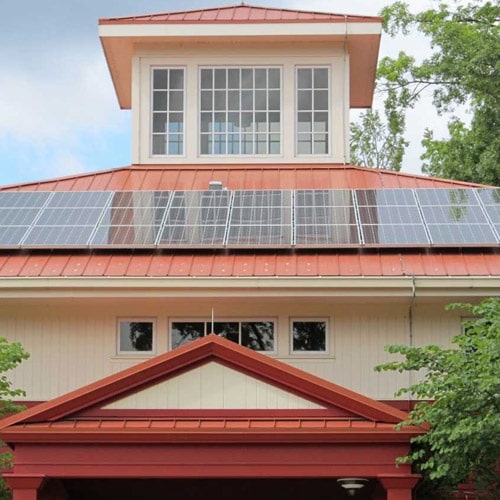
Power cuts have become a common occurrence in several places around the world. While power cuts cause a major inconvenience for homes and businesses, it can have an adverse effect on appliances and devices connected to the main power supply as well. Voltage fluctuations and frequent power cuts are one of the biggest reasons for short circuiting in devices and can damage them completely as well. This is why inverters are more than just a backup power source and have become a crucial necessity. Maintaining the inverter efficiency is also important as inverters start losing their power capacity as they age. The inverter battery lifespan indicates how long the inverter can power up your appliances in times of a power outage.
Know your Battery
There are two primary types of inverter batteries. Tubular battery and flat grid battery. Tubular batteries let the electrolytes flow more easily, as the activating agent is placed inside a circular tube. This helps in keeping the temperature of the battery from building up when charging. Furthermore, it results in faster charging of the battery and retains the charge more efficiently for longer, leading to an extended battery life.
In a flat grid battery, the activating agent is placed on a flat grid, which leaves lesser space for electrolytes to move around. As a result, more heat is generated and it takes much longer to charge and is not as efficient in retaining that charge as compared to tubular batteries.
Also Read: Best Ways to Charge Inverter Battery When You Don’t Have Power
The average inverter battery lifespan of a tubular battery is 7-8 years as compared to just 3-4 years of a flat grid battery. Always keep in mind that the longer any battery is exposed to heat, the lesser its efficiency. I will also affect the lifespan and durability of your inverter.
How to Increase Inverter Battery Life?
Load And Not Overload: Use Only the Electronic Appliances That You Really Need
The basic concept of an inverter is to provide backup power during a power cut to let us continue with our routine effortlessly. It will surely provide a backup for a few hours. But, following this simple trick will help you get more time and backup from your battery. During a power cut, use only the electronics that you require and disconnect the ones that are not really needed. This might seem a very simple and easy thing to do but often, we end up using more electronic devices than we need during a power cut. This causes the charge in the battery to deplete much faster resulting in a lesser duration of battery backup. Using just the devices you need will surely provide you with a longer battery backup.
Also Read: How to Calculate Your UPS/inverter Battery Back-up Time?
Conserve Energy with Energy Saving Devices
Another great way to extend the backup duration of your battery is to use energy efficient devices. For example, replacing your CFL with an LED can be of great help as LEDs are known to consume 75-80% less electricity as compared to CFLs. Installing other home appliances such as refrigerators, air conditioners, ceiling fans etc. with a higher BEE Star (Bureau of Energy Efficiency) rating is a great way to save power and money. The best energy-saving appliances come in the range of 3 to 5 BEE Star rating. The higher the star rating, the more energy efficient the appliance will be. Running such devices on your inverter battery will consume much less power as compared to older appliances. For example, a refrigerator with a 5-star energy rating will consume lesser power from your inverter as compared to a refrigerator with a 3 or 4-star rating.
Also Read: All You Need to Know About Running a Freezer on Solar Power
Make Sure Your Inverter Is in Tip-Top Shape
While the above-mentioned tips will help you get more juice out of your inverter battery, you need to ensure that your inverter is in top shape as well. It is recommended to check the water level every 60 days. Always use distilled water when topping up the battery as it is free from any impurities. It is also very important to check on the terminals of the battery from time to time and prevent any corrosion or rust from forming. Corrosion and rust affect the steady flow of the current which has a direct effect on battery efficiency and even reduces the overall lifespan of your battery.
It is important to note that no matter what you do, the efficiency of inverters will decrease as they age and there is nothing you can do to prevent it from happening. What we can do is to increase the inverter battery lifespan by following best practices and making sure that the inverter isn’t overused or overloaded too much. It is also important to choose an inverter that is more than capable of powering up all the lights, fans, and other devices available in your home so that there isn’t too much strain on the battery.
